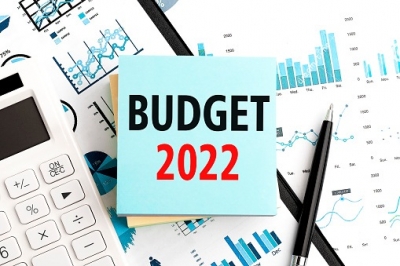New Delhi, Jan 21: To restore consumer confidence, which was severely dented by waves of the Covid-19 pandemic and to sustain the growth recovery, the Budget is expected to provide support through various measures.
It will also have to give clear policy signals towards fast-tracking economic revival, Brickwork Ratings said in a report.
The growth outlook for the next fiscal is clouded by various downside risks, including new Covid-19 outbreaks, rising commodity prices, mounting inflationary expectations, lingering supply bottlenecks and not-so-favourable global recovery amid diminished fiscal and monetary policy support.
In such an environment, where several sectors of the economy are still functioning below potential, preparing the budget is, by no means, an easy task, the report said.
The impact of the pandemic on economic activities continued in FY22, with the emergence of new Covid variants disrupting recovery in the growth process. After a 7.3 per cent contraction in the GDP in FY21, the economy was bracing for double-digit growth in FY22. Last year’s economic survey projected GDP growth at 11 per cent for FY22. However, due to repeated restrictions following the new Covid mutants and the second wave of the pandemic, growth momentum was constrained in several contact-intensive sectors of the economy.
The advance estimate of GDP for FY22 shows that economic recovery is yet to take firmer roots. The estimated GDP growth for FY22 in constant prices at 9.2 per cent looks optimistic as the impact of the sharp rise in cases and the effect of shortages in crucial inputs and increase in input costs are yet to be ascertained. The agriculture sector has continued to grow, albeit at 3.5 per cent to 4 per cent, but recovery in both the industry and service sectors has been constrained due to the constraints caused by the non-availability of semiconductors, supply shortages in coal and power outages, the report said.
Moreover, even if we assume that the GDP will grow at 9.2 per cent in absolute terms, to Rs 1,47,53,535 crore, it is higher than the 2019-20 estimate by just 1.2 per cent. Surely, proactive government interventions are needed not merely to revive growth to pre-pandemic levels, but also to increase the medium-term growth trajectory, and this requires an acceleration in the pace of reforms to remove structural rigidities and the creation of favourable conditions for new investments and growth, it added.
